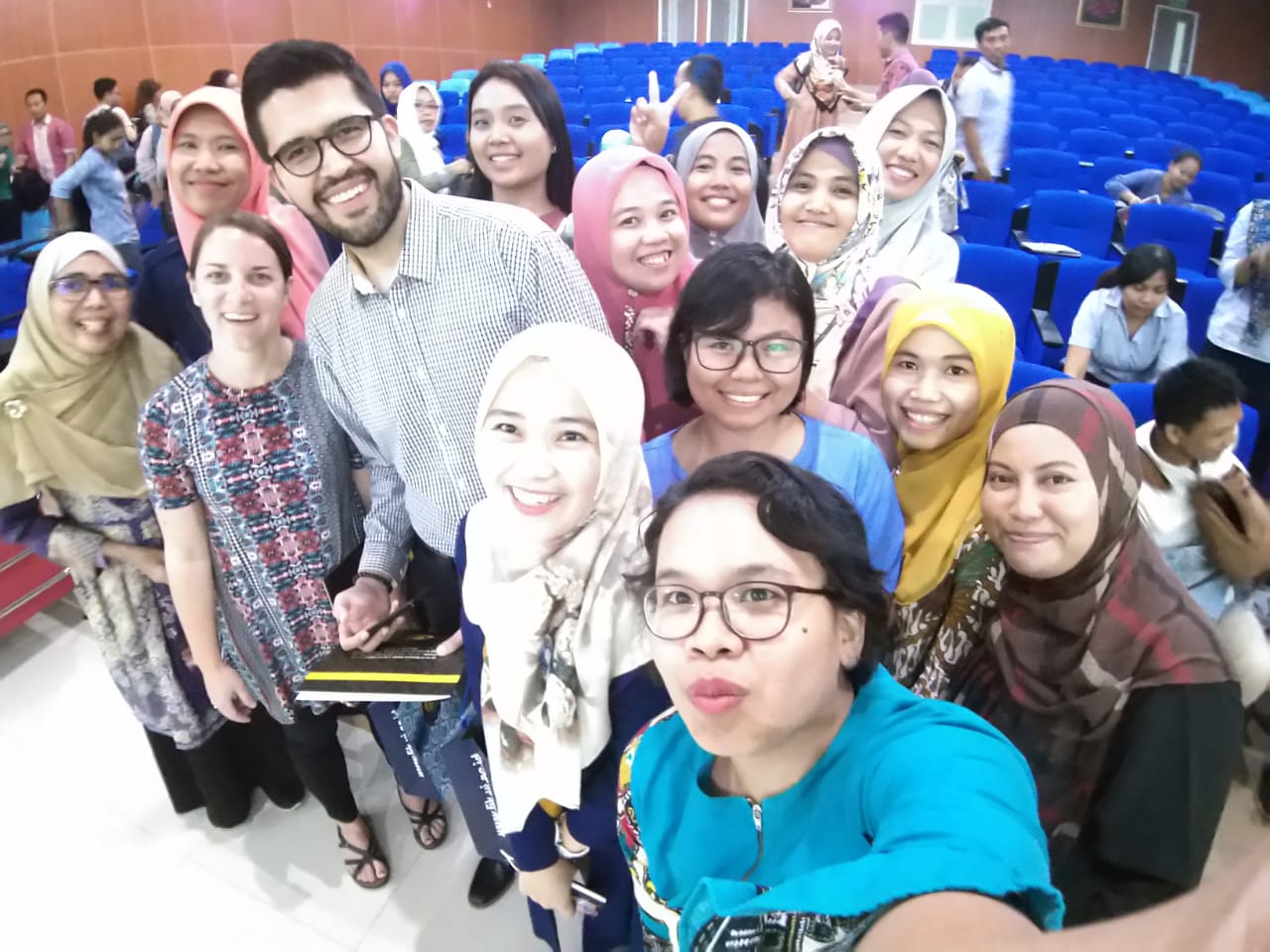
13 Nov Introducing Human Resources for Health at Universitas Indonesia
Photo: Leah McManus, Technical Advisor at HRH2030 and Stuardo Herrera of Palladium pose with nursing students at Universitas Indonesia
Reflect on your time in college or post-graduate studies. For most of us, this was one of the most formative times in our lives. It shaped who we were going to be as adults and influenced our future career paths. For nursing or midwifery or medical students, this time is critical to supporting their growth as health workers of the future. In my role as technical advisor on the USAID HRH2030 program, the development of health workers is of great interest to me. Given the unexpected opportunity to meet with nursing students at Universitas Indonesia in September, I jumped at the chance.
My HRH2030 Program colleague, Stuardo Herrera of Palladium, and I were invited to guest lecture on two topics within our expertise: human resources for health (HRH) and big data. Overall, we wanted to reinforce to them the idea that they should have a voice throughout their professional career to take ownership of transforming their workplace into an enabling environment to provide people centered care that is safe, effective, timely, efficient and equitable. To achieve this goal, we asked ourselves, how we could connect the importance of understanding the principles of health workforce development and strengthening, and use of health data from multiple sources, to nursing students focused on delivering quality care to, for example, pregnant women and newborns?
For the big data part of the lecture, Stuardo took a more playful, interactive approach to review some emerging technology trends supporting big data that enables better data collection and use in health care approaches. For example, the use of augmented reality and gesture control to improve the quality of patient care and infection prevention control. He also described how personal analytics devices and virtual healthcare advisors, which compile and analyze data to help individuals and health workers make more timely and accurate diagnosis, ultimately support health workers to truly provide people-centered care. While some of this seems futuristic, in a country like Indonesia, which is the eighth largest consumer of internet in the world and one of the largest economies in south east Asia, this future is not far off. Nursing students — and all health professionals — must be prepared to respond to the rapidly changing dynamics of health service delivery and feel empowered to leverage these developments to enable and promote quality of care.
At HRH2030, we know that investments in the future of the health workforce, or pre-service education, help us create an available, accessible, acceptable, and quality health workforce, which is critical not only to providing quality care to pregnant women and newborns, but also to achieving the goal of health for all. Stuardo and I were happy to spend time with these students, hopefully sparking an interest in this emerging health workforce who will serve as champions for human resources for health best practices and principles and use of data, to ensure quality of care for all. Thank you to Universitas Indonesia for allowing HRH2030 to meet and speak with your students. We hope it was as enlightening to your students as it was for us!





